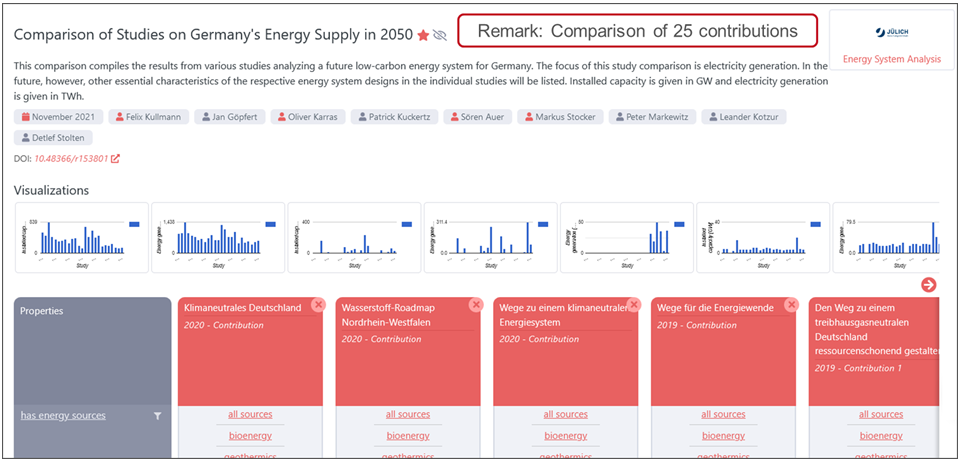
Oliver Karras, CC BY 3.0 DE
You can find the publication here: https://doi.org/10.48366/r153801.
This use case is particularly interesting as it involves a large set of multidisciplinary studies and can be used as a basis for complex systems analysis. We are proud to contribute to the collaborative effort of studying sustainable energy systems!
The publication was supported by the NFDI4Ing Task Area Ellen, which aims to sustainably support engineers in their search for data by making research data and software machine-actionable through semantic annotations, increasing their level of integration and reducing the effort required for their reuse.
Patrick Kuckertz, Felix Kullmann, Jan-Maris Göpfert, Oliver Karras, Sören Auer, Felix Engel, Markus Stocker, Peter Markewitz, Jann Weinand, Leander Kotzur, Detlef Stolten
